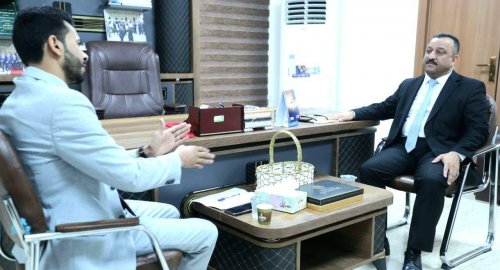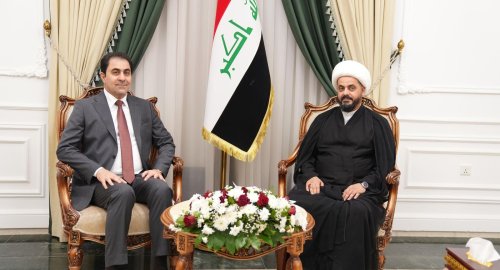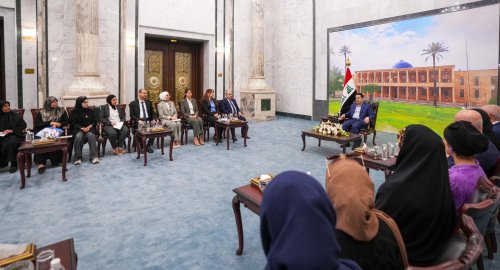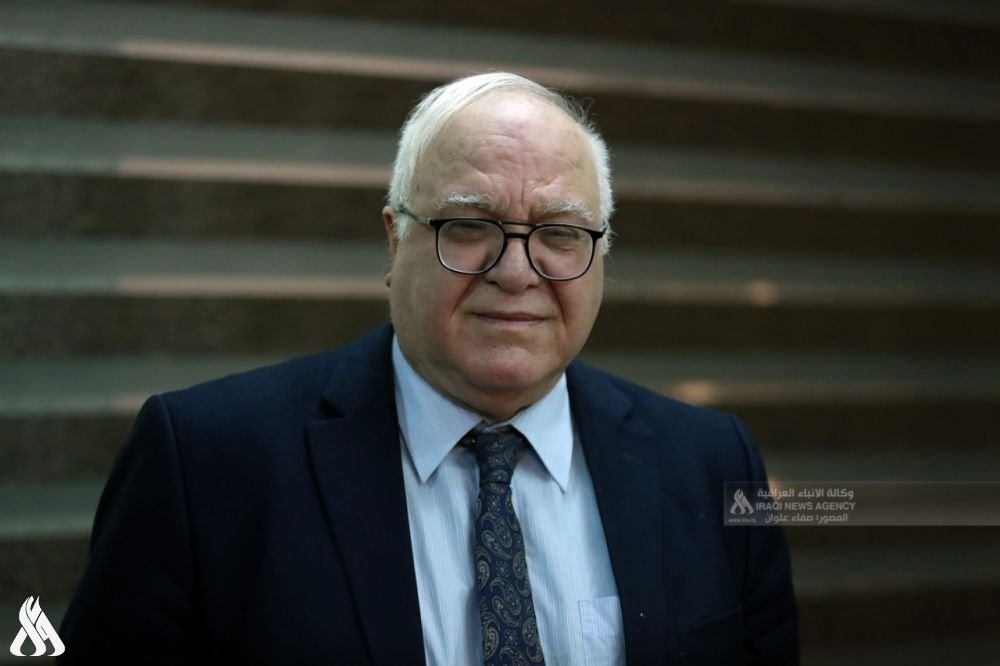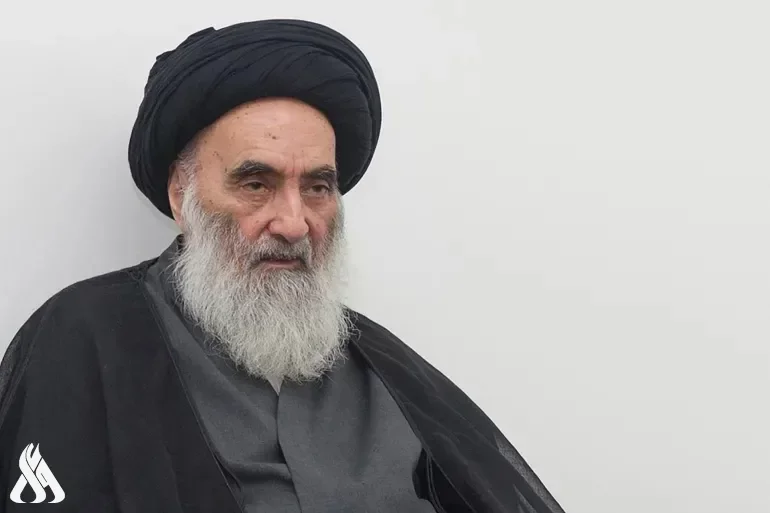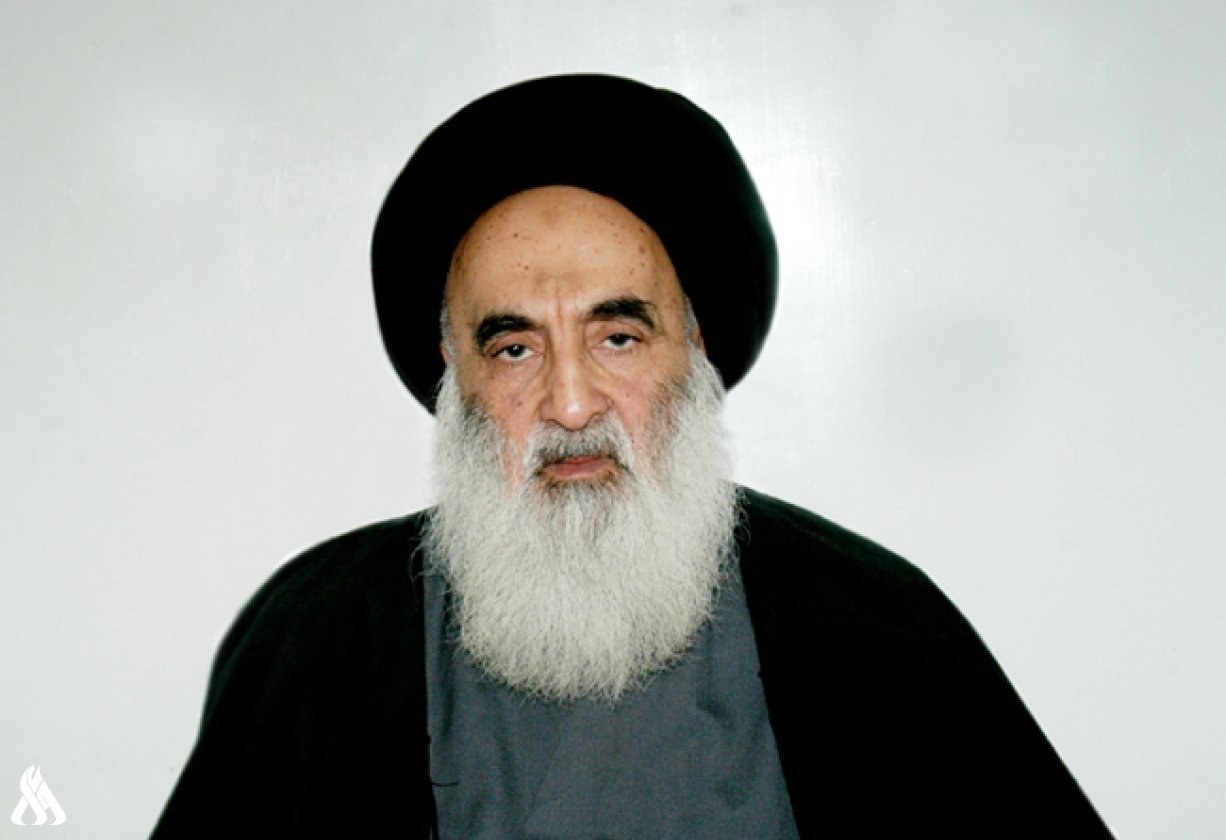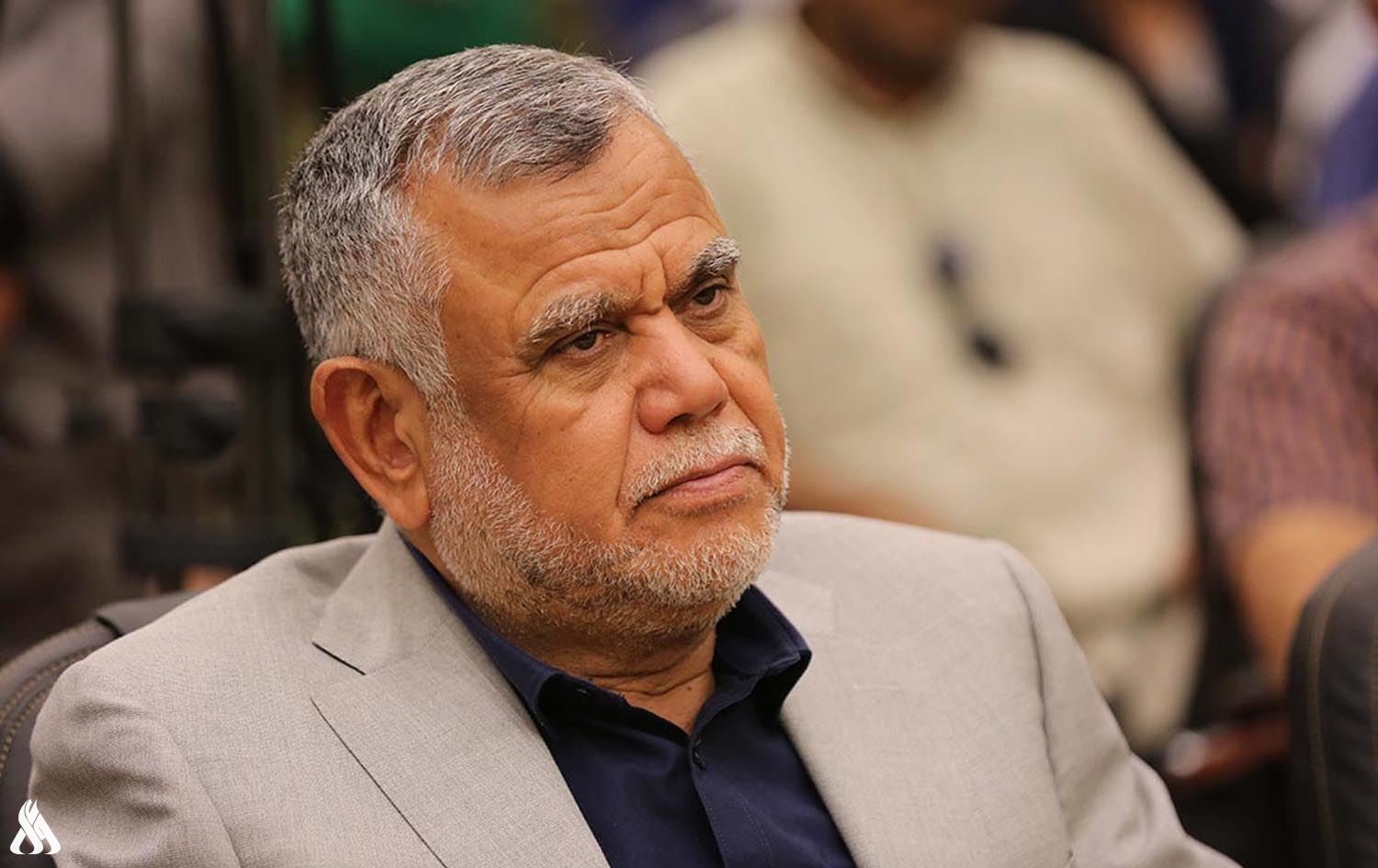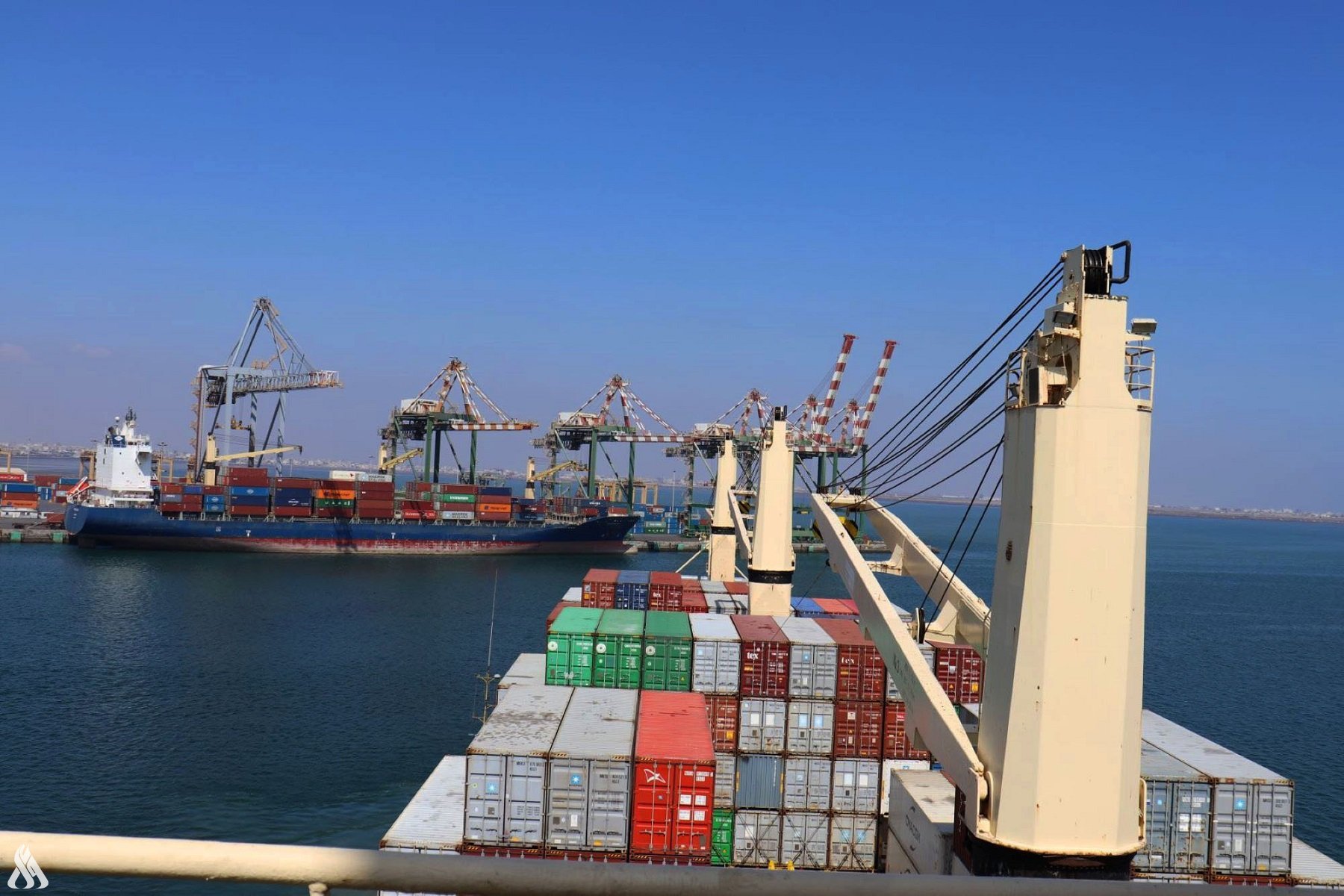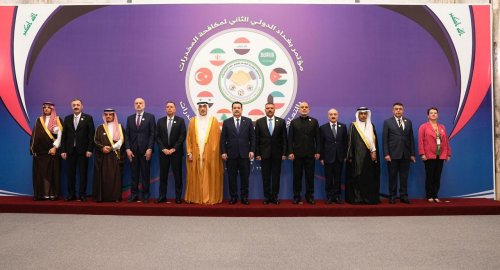
INA: The final statement of the Second Baghdad International Conference on Drug Control

- 22-07-2024, 16:50
INA - BAGHDAD - LIVE UPDATES
Iraqi News Agency - INA published on Monday, the final statement of the Second Baghdad International Conference on Drug Control, chaired by PM Muhammed S. Al-Sudani
Participants in the Second Baghdad International Conference on Drug Control, held on July 22, 2024, included Ministers of Interior from Saudi Arabia, Jordan, Kuwait, Iran, Türkiye, Syria, Lebanon, and Egypt. This included distinguished guests, the Secretary-General of the Council of Arab Interior Ministers, the President of Naif Arab University for Security Sciences, and representatives from the United Nations Office on Drugs and Crime - UNODC, according to a statement by the PM Media Office.
Participants expressed their "gratitude and appreciation to the government and people of the Republic of Iraq, and the Ministry of Interior, for the excellent organization of the Second Baghdad International Conference on Drug Control."
They discussed the "serious situation resulting from the increasing rates of drug abuse and addiction both regionally and internationally," acknowledging that "this increase is a consequence of rising drug trafficking and trade operations."
In a spirit of national and humanitarian responsibility, they deliberated on this phenomenon, methods to combat it, and innovative mechanisms to create a comprehensive approach aimed at eradicating this dangerous scourge.
Participants emphasized "the need for unified regional and international efforts to enhance regional and global security to counter the spread and trafficking of drugs and psychotropic substances, thereby protecting societies from this danger. They recognized the necessity of integrating security and intelligence work among their countries, responding to the phase's conditions and the similar challenges faced, in addition to the resemblance of many laws, regulations, traditions, and beliefs that reject and condemn this scourge. They also encouraged the establishment of institutions and creation of agencies to limit the spread of this phenomenon and eliminate it."
The statement included, "Given the human, historical, cultural, and fraternal ties between our countries and peoples, and in continuation of efforts to find the optimal formula to enhance cooperation and coordination, and in the belief that the importance of this cooperation comes in response to the desires and aspirations of our peoples for a better and brighter future, and following up on the outcomes of the First Baghdad International Conference on Drugs Control held last year," participants recommended the following:
1. Strengthen joint action mechanisms and adopt the principle of integration in security work to cut off drug trafficking routes, prevent their cultivation and manufacture in all forms, pursue active gangs in this field, dismantle them, and eliminate them.
2. Update databases of criminals and wanted persons in drug trafficking and psychotropic substances cases among participating countries, protecting them from breaches to aid in tracking and apprehending criminals for these crimes.
3. Adopt scientific methods and modern techniques, conduct parallel financial investigations, and utilize technology in detection, tracking, and seizure operations, ensuring criminals are brought to justice.
4. Intensify efforts to monitor, track, and surveil websites and social media platforms that promote and trade drugs and psychotropic substances, stopping their activities and preventing them from recruiting vulnerable individuals for their criminal operations.
5. Activate and stimulate prevention mechanisms and prevent drug use or addiction by promoting awareness about the dangers of this scourge and the harm it causes to individuals and society.
6. Address legal loopholes in the national legislations of participating countries (if any) and tighten penalties for synthetic drugs to prevent drug trade gangs from exploiting these gaps to escape legal accountability and punishment for their vile actions that destroy peoples and nations.
7. Explore the possibility of expanding the establishment of drug addiction rehabilitation centers to help young people overcome addiction, and exchange experiences and best practices in managing these centers to enhance performance efficiency and achieve their intended goals.
8. Participants appreciated the Republic of Türkiy's initiative to propose an early warning system for the latest developments in the drug file and its readiness to provide specialized training in drug control for all participating countries.
9. Benefit from lessons learned from the experiences of developed countries that faced the threat of this scourge, adopting ideas, methods, and mechanisms to help create new strategies and approaches to confront the threat of drugs, tailored to our societies' specific circumstances.
10. Emphasize the ongoing efforts to implement the resolutions of the ministerial quadripartite meeting of the Ministers of Interior (Iraq, Jordan, Syria, Lebanon) held in February 2024 by the aforementioned countries.
11. Reaffirm ongoing efforts to implement the recommendations of the First Baghdad International Conference on Drugs Control held in May 2023.
France: Europe will respond proportionately to tariffs
- Economy
- 09:19
Al-Mandalawi Meets Sheikh Al-Khazali
- politics
- 08:59
Gaza Health Ministry Announces New Death Toll for Zionist Aggression
- International
- 06:04
Al-Sistani: Tomorrow, the 29th of Ramadan
- Local
- 25/03/29
Al-Amiri warns of any war between Iran and the US
- politics
- 25/04/01


